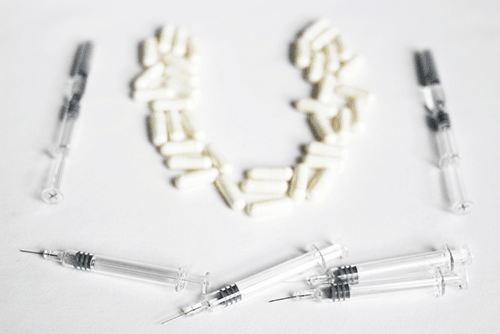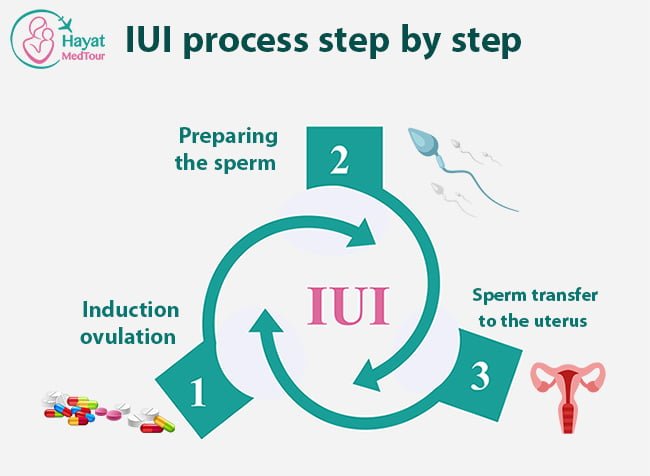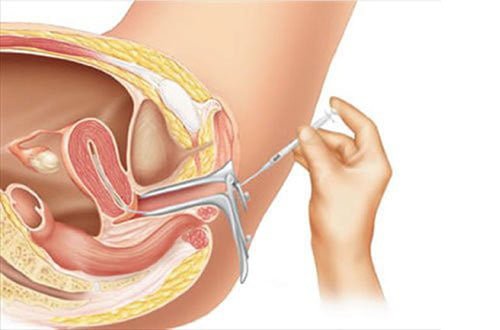IUI in Iran
Intrauterine insemination, or IUI, has been used for nearly 200 years as one of the methods of infertility treatment worldwide. In addition to providing advanced and effective infertility treatment services, more than 80 specialized fertility clinics in Iran use IUI to treat couples that are good candidates for treatment.
Iran is one of the world’s pioneers in effective infertility treatment and many foreign couples have traveled to Iran in recent decades to treat their infertility problems.
Along with Iran’s excellent record of infertility research and treatment, low treatment costs have made Iran a good destination for treating infertility problems in the Middle East and around the world.
For more information about IUI in Iran, please contact us.
What is Artificial insemination or IUI?
Artificial insemination, or IUI, is one of the methods of assisted reproduction (ART) in which washed sperm are injected directly into the uterine cavity. This is done near the woman’s ovulation period.
The cervix naturally limits the number of sperm that enters the uterus. For this reason, in natural pregnancy attempts, only a limited number of sperms can find their way into the Fallopian tubes.
In the IUI method, by directly inserting sperm into the uterus, travel to the Fallopian tubes becomes shorter and the probability of sperm contact with the egg increases, thereby increasing the chance of pregnancy.
IUI is a less invasive infertility treatment method and it has many broad applications. This method is generally used as a first step in the infertility treatment process, and if unsuccessful, depending on the couple’s condition other treatments such as IVF are suggested.
When is IUI recommended?
There are many reasons for couples’ fertility disorders. IUI can be recommended to couples in the following cases.
- Low sperm count and motility in male partners
- Ejaculation problems due to impotence or penile dysfunction
- The presence of anti-sperm antibodies in semen
- Ovulation problems (like polycystic ovary syndrome (PCOS))
- Cervical damage that can prevent sperm from entering the uterus
- Mild or moderate endometriosis (Learn more about endometriosis: Endometriosis and Infertility)
- Vaginismus in women (involuntary vaginal contractions that disrupt sex)
- Unexplained infertility
How is IUI done?
IUI process step by step
IUI is the simplest method of treating infertility. IUI involves the process of ovulation induction, sperm washing and condensation and sperm transfer to the uterus. Each of these 3 steps will be explained below:
-
Induction ovulation
IUI is performed at about the same time as a woman’s ovulation. Fertility specialist prescribes medications to stimulate ovulation to control egg arrival time and increase the number of releasing eggs in a cycle and so, increase the chance of pregnancy in an IUI cycle.
The use of ovulation induction medications begins about 8 to 14 days before menstruation. You need every two or three days to check for ovulation and at the end of treatment, usually, see your doctor every other day. Depending on the case, the induction ovulation procedure usually takes 10 to 20.
-
Preparing the sperm
if you are undergoing IUI, the sperm sample will undergo a special washing and processing procedure. After a semen sample is obtained, the sperm are washed and concentrated to maximize the chances of conception. This process usually takes about 2 hours. Semen can be collected and washed near the time of IUI and then transfer to the uterus or it freeze and use at the right time. In order to increase the number and quality of the collected sperm, it is recommended that the male avoid sexual intercourse 2 to 5 days before semen collection.
-
Sperm transfer to the uterus
IUI is a relatively simple procedure, but determining the right time to do it is important because the egg can fertilize less than 24 hours after being released. For this purpose, the infertility specialist by performing ultrasound predict the exact time of ovulation and necessary examinations and by injecting assisted reproductive drugs such as HCG, provides conditions for sperm transfer to the uterus. IUI is usually performed 24 to 36 hours after the injection of assisted reproductive drugs. IUI is an outpatient procedure that does not require anesthesia. In this procedure, the condensed sperm is gently injected into the uterus using a thin plastic tube. This is usually painless, but some women experience mild congestion.
Artificial Insemination Success Rates
A pregnancy test can be performed 2 weeks after the sperm transfer. The positive pregnancy test indicates that the IUI process is successful. The success rate of IUI depends on the causes of infertility in couples. In men whose motility of sperm is inadequate, as well as women whose cervix prevents sperm from entering the uterus, IUI is an ideal way to treat infertility. learn more about infertility in men: Causes of male infertility
One of the major variables in the success rate of IUI is the female age. In women under 35 years, the success rate of IUI per cycle is 20% and it is 88% after 7 cycles. While the success rates of IUI in the female between 35 and 40 years are about 12% per cycle and 65% after the seven cycles.
The success rate of IUI per treatment cycle is reduced to 6% in women over 40. If IUI treatment fails after 4 to 6 treatment cycles, infertility specialists suggest other methods of infertility treatment, such as IVF and ICSI. To find out more about the IUI treatment process and other methods of infertility treatment in Iran, you can get in touch with Hayat Medtour experts through the free consultation page.

Post-IUI care
In general, the following guidelines for post-IUI care are recommended:
- After the IUI procedure, the woman rests for about an hour in a lying-down position, but after an hour, she can do her daily activities and does not need absolute rest.
-
It is recommended to have sex after the treatment process in the absence of bleeding and spotting. (Increases the fertility chance)
-
Avoid using a bathtub or vaginal wash
- Avoid tobacco and alcohol.
General recommendations to improve the success of IUI
- Sexual intercourse after IUI increases the chance of fertility. However, in cases of spotting or vaginal bleeding, sexual intercourse is not recommended until 48 hours after IUI.
- Swimming should be avoided when using suppositories such as those usually administered after IUI, otherwise, there is no obstacle to swimming after IUI.
- Having a healthy and nutritious diet, exercise, not smoking, and alcohol consumption, and reducing caffeine intake in women increase fertility success.
- In men, having a healthy and high antioxidant diet (such as vegetables and fruits), multivitamin consumption, keeping a healthy weight, regular exercise, avoidance of stress (stress impairs the secretion of the essential sperm-producing hormone) are the affecting factors in the success rate of IUI.
- In addition, heavy metals, insecticides, and solvents can affect the quality and quantity of sperm and the success of IUI. Learn more about ways to boost sperm quality and increase fertility in men: How to increase sperm quality
- To increase the likelihood of successful IUI, men are advised to refraining from smoking. Tobacco use affects sperm with the following two mechanisms: 1-Tobacco smoking causes the sperm to deform and thus impairs sperm penetration into the egg. 2-Smoking destroys sperm DNA. Damage to DNA can cause serious problems for the fetus (such as developmental-mental retardation). Studies show that even chewing tobacco reduces sperm count and erectile dysfunction in men. (Learn more about effects of smoking on fertility: effects of smoking on fertility )
- Bathing in hot water or a hot bath or even wearing tight clothing that restricts blood flow to the testicles and thus affects sperm health.
What are the side effects of IUI?
Many women who have undergone IUI experience pain similar to a Pap smear test. However, passing a catheter through the cervix may cause spotting, bleeding, and abdominal pain due to the possibility of minor injuries. Many infertility specialists, however, find the cause of abdominal pain to be ovulatory. Of course, many infertility specialists know the cause of abdominal pain is ovulation. Most of the time, because the cervix is soft and slightly open during ovulation, the catheter passage is not felt. If pain is present after the IUI, only painkillers containing acetaminophen, such as NSAIDs, are allowed, and Ibuprofen group painkillers should be avoided.
What are the risks of IUI?
In most multiple – pregnancies, healthy babies are born. But the risk of preterm births, maternal hypertension, and gestational diabetes is higher in multiple- pregnancies. If the ovarian stimulation medications are prescribed in the therapeutic process of IUI, twin or multiple- pregnancies are more likely to when they are not used. There is a small risk of infection following the IUI procedure. Your doctor will use sterile instruments, so infection is very rare.
Cost of IUI in Iran
The cost of IUI depends on a variety of factors such as the cost of the best fertility doctors, the clinic, the medication, and the post-treatment care. In addition, in some patients, IUI cycles need to be repeated several times to achieve optimal results and fertility. The cost of IUI in Iran (including diagnostic and medical costs, male and female fertility tests, and medications) is about 500 to 600 US Dollars per cycle. While the cost of IUI in other countries is more expensive. For example, the minimum price for an IUI course in the US and other countries is between $ 300 and $ 1,000. The quality of services provided in the Best infertility treatment centers and clinics in Tehran, Iran is at the highest level in the world and you can benefit from these services at a lower cost.
Frequently Asked Questions about IUI
Does stress prevent pregnancy after IUI and fertility treatments?
Yes, stress causes the release of hormones that prevent the implantation of the fetus and therefor IUI treatment failing. If you have stress and anxiety, it is advisable to consult a psychiatrist before beginning infertility treatment to begin the process of infertility treatment without stress.



